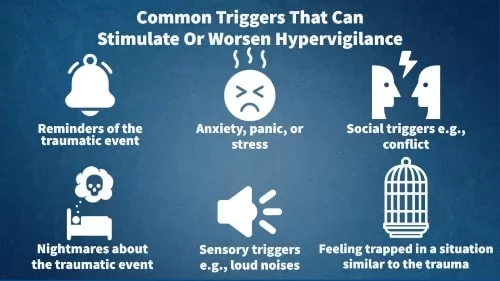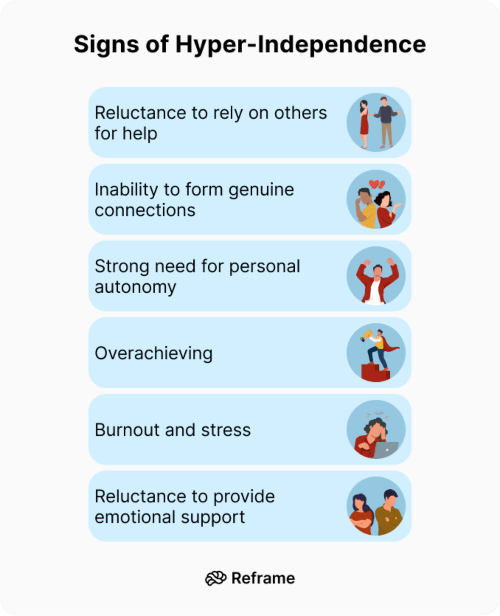Surviving narcissistic abuse isn’t a one-time escape; it’s a process of getting away again and again. Fargo Season 5 captures this reality with its main character, Dot.
Dot’s story mirrors the experiences of countless survivors. In her case, she escapes a communal narcissist, Roy Tillman, a county sheriff.
As she tells the police officer, “It’s not my first getaway,” we see a raw portrayal of what it’s really like to live through—and survive—narcissistic abuse.
But as any survivor knows, simply getting away isn’t the end of the journey. Often, we give narcissists multiple chances to change, only to find ourselves trapped once more. It’s a repeating cycle where escaping one narcissist doesn’t always mean we won’t face another.
Throughout the series, Dot demonstrates a range of skills needed not only to escape but also to survive long after breaking free. If you’ve ever dealt with a narcissist, her story will hit close to home.
In this blog, we’ll break down those essential survival skills and the ongoing challenges you’ll face after surviving narcissistic abuse.
Even after going no-contact, the emotional scars, hypervigilance, and fear don’t simply vanish. These are the ghosts that will continue to haunt you, and we’ll also explore how to navigate that in your healing journey after surviving narcissistic abuse.
Let’s look at the key themes using the examples of Dot (Dorothy Lyon) and her mother-in-law, Lorraine Lyon.
The Vigilance and Fear: Always One Step Ahead
Survivors of narcissistic abuse often find themselves in a heightened state of awareness, always anticipating the next move of their abuser.
Dot is constantly thinking about the danger Roy Tillman poses. After her arrest, she knows Roy will track her through her fingerprints, and she prepares for the worst. From changing her identity to adding extra security to her home, she is always anticipating the next attack.
Like many survivors, Dot takes extreme measures—firearms, bulletproof vests, and even changing road signs to throw him off her trail. This level of vigilance is exhausting, but for surviving narcissistic abuse, it’s necessary.
The following infographic from perfectly describes triggers for hypervigilance in abuse survivors.

Radical Acceptance: No One Is Coming to Help and Narcissists Are Not Going to Change
Radical acceptance is key when dealing with narcissists—you must acknowledge their capacity for harm while also accepting that not everyone will be there to help you.
Dot knows just how dangerous Roy is. She doesn’t waste time trying to convince others of the threat, because she knows most people won’t understand or won’t want to get involved.
It’s a common reality for survivors—many find that people either don’t believe them or are too uncomfortable to offer support.
The one person who shows empathy toward Dot is Deputy Indira, who helps her because she sees the situation from the start. This small but important relationship shows that finding allies, while rare, is essential for survival.

Survival Mode: Redefining Morality
Survival mode shifts your focus from worrying about how others see you to simply staying alive.
When you’ve been pushed to your limits by surviving narcissistic abuse, what once mattered—like being polite or trying to fit into societal expectations—fades into the background.
Dot shows us this when she clashes with her mother-in-law, Lorraine, even using harsh language to stand her ground.
Survivors of narcissistic abuse often stop worrying about what’s “acceptable” behavior because they are simply trying to survive. In Dot’s case, she’s no longer concerned with being seen as a “good” person—she’s focused on staying safe after surviving narcissistic abuse.

Here are a few resources on survival mode:
https://www.mvspsychology.com.au/survival-mode-psychology-what-it-is-and-how-it-affects-you/
https://www.calm.com/blog/survival-mode
Resilience and Courage: Outthinking the Abuser
When faced with seemingly impossible odds, survivors of narcissistic abuse often find strength they never knew they had.
Dot’s ability to think on her feet and survive dangerous situations is a testament to the resilience survivors often develop.
Despite being tied to a bed by a much stronger man, Dot outsmarts him and escapes. She manages to evade her kidnappers, kills one of them, and saves a police officer.
The physical and mental strength that emerges in moments like this is driven by a survival instinct.
This kind of determination can be seen in many survivors, whose fight-or-flight response kicks in, allowing them to push through unimaginable situations after surviving narcissistic abuse.

Extreme Self-Reliance and Hyper-Independence: Trusting No One
Survivors often develop extreme self-reliance, knowing the world may not come to their aid.
After surviving narcissistic abuse, Dot has learned to rely solely on herself. She doesn’t talk about her past because she knows most people won’t care or will back away at the first sign of trouble.
Like many survivors, she has developed an extreme sense of independence because she’s learned that when push comes to shove, others won’t be there to help.
This is a common theme for survivors—after being let down repeatedly after surviving narcissistic abuse, they take matters into their own hands and develop a fierce sense of independence.
While this hyper-independence can be a strength, it can also make healing more difficult, as survivors often find it hard to ask for help.


Your Behavior May Look Shady to Others: The Hidden Impact of Trauma
People may behave in ways that seem odd or secretive after surviving narcissistic abuse, but these are coping mechanisms developed in response to trauma.
Dot doesn’t bother explaining her trauma to others. She has learned to hide her experiences because sharing them is painful, and she knows people may not empathize.
Survivors often learn to keep things to themselves, not out of dishonesty, but out of self-protection. Sharing your story can feel like a burden to others, and worse, the reactions you receive can be dismissive, curious for gossip, or entirely lacking in empathy.
You’ve likely faced enough emotional invalidation from the narcissist, so opening up to people who might trivialize your trauma feels too risky. As a result, you hide parts of yourself.
In my experience, I had to conceal a lot of my health issues that stemmed from narcissistic abuse. People assumed I was lazy or being shady, but in reality, I was dealing with hypervigilance and anxiety.
Privacy became my refuge. The survival mechanisms that once kept you safe in the midst of narcissistic abuse—like staying quiet or avoiding confrontation—now make you seem distant or secretive.
It’s a painful cycle, where self-protection is misunderstood as deceit or weirdness.

Her Empathy Still Shines Through: Kindness in the Face of Pain
Even in the face of incredible adversity, survivors like Dot often retain their ability to empathize with others.
Despite everything she’s been through, Dot still shows kindness and empathy toward others. When the police officer Witt Farr is in trouble, she helps him, even though her own life is in danger.
She also shows compassion toward Roy’s son, Gator, even after he attacks her.
This ability to stay compassionate, even after surviving narcissistic abuse, is a hallmark of many survivors. While they may be hardened by their experiences, their empathy remains intact.

Support Systems: The Importance of Allies
No one survives narcissistic abuse alone—a strong support system is a critical part of the healing journey.
Dot’s escape from Roy Tillman, wasn’t something she could do on her own. It took the combined efforts of state and federal resources, her mother-in-law Lorraine’s influence, and a dedicated few who genuinely cared about her well-being.
Deputies like Indira and Witt played crucial roles in Dot’s rescue, seeing through her struggles and offering the kind of help that can make or break your ability to stay free from a narcissist.
Sadly, Lorraine’s attorney, who was also an ally, lost his life trying to protect Dot, further highlighting just how dangerous and relentless narcissists can be.
For surviving narcissistic abuse, having people in your corner is essential.
A strong support system is not just about having people around—it’s about having the right people who understand your situation, are willing to go to bat for you, and can provide both emotional and practical assistance.
Whether it’s a friend, family member, or even professionals, a solid support system can make all the difference when it comes to surviving narcissistic abuse. Surrounding yourself with people who understand and can help you is crucial for moving forward.

Dealing with Narcissists Like a Badass – Lorraine Lyon: Outsmarting the System
Lorraine demonstrates that surviving narcissistic abuse requires a combination of strategy, influence, and fearlessness.
Using her wealth and influence, Lorraine takes down narcissists like Roy, proving how capitalism and power can be tools for overcoming narcissistic abuse.
She plays Roy at his own game, identifying his weak spots and exploiting them to her advantage.
By threatening him with public humiliation, she forces him to retreat.
Eventually, she ensures that he faces every form of abuse he inflicted on his wives while in jail.
Lorraine shows that sometimes we can defeat a narcissist by knowing how to use our own powers.
Dot’s journey in Fargo Season 5 is a powerful portrayal of what it takes after surviving narcissistic abuse.
From hypervigilance to radical self-reliance, she shows us that surviving narcissistic abuse is a process. But with resilience, courage, and a solid support system, healing is possible.
FAQs on Surviving Narcissistic Abuse
1. How to survive a narcissistic abuse?
For surviving narcissistic abuse, it’s crucial to adopt effective strategies that prioritize your mental and emotional well-being, such as establishing boundaries, seeking therapy, focusing on self-care, educating yourself, and building a support network.
2. How long does it take to heal from narcissistic abuse?
There is no fixed timeline for healing from narcissistic abuse. The process varies depending on factors like the extent, duration, and type of abuse, as well as the quality of resources available for your recovery.
3. Does narcissistic abuse ever end?
Narcissistic abuse will only stop if you walk away, as narcissists rarely change. Even after leaving, they may continue to try to manipulate or contact you. Unless you set firm boundaries or go no contact, and avoid falling for hoovering attempts, the abuse can persist. It will continue as long as they remain a part of your life.

